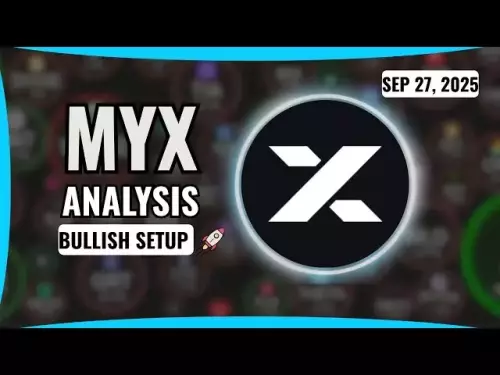Franklin Templeton expands its Benji Platform to BNB Chain, signaling a major push into on-chain finance and a growing trend in tokenized real-world assets.

Franklin Templeton's move to expand its Benji Technology Platform to BNB Chain is shaking things up! It signals a stronger push into on-chain finance, linking a major asset manager with a blockchain known for its speed and affordability. What's the deal, and why should you care?
Benji Platform: Bridging Traditional Finance and Blockchain
The Benji platform powers the Franklin OnChain U.S. Government Money Fund (FOBXX), a first-of-its-kind U.S.-registered mutual fund operating on a blockchain. Each share equals one BENJI token, facilitating daily subscriptions, peer-to-peer transfers, and real-time net asset values. With $742 million in assets and over $51 million in dividends paid, it's clear they're not messing around.
Why BNB Chain? Low Fees, High Speed
Franklin Templeton's expansion aims to meet investors where they're active, prioritizing compliance and security. BNB Chain's low gas fees (potentially as low as $0.005 per transaction after a proposed cut from 0.1 Gwei to 0.05 Gwei) and high transaction speed (block intervals dropping from 750ms to 450ms are expected) lower barriers for both big players and retail users. According to Mike Reed, Senior Vice President and Head of Digital Asset Partnership Development for Franklin Templeton, this move positions them to be ready as the market evolves and interest grows for new types of products beyond tokenized money funds.
BNB Chain: A Hub for Tokenized Assets
BNB Chain has become a hub for tokenized assets, boasting significant perpetual trading volume. The addition of Benji follows earlier integrations like Circle’s USDC token and Franklin Templeton’s partnership with Binance. Sarah Song, BNB Chain's Head of Business Development, noted that Franklin Templeton's decision validates BNB Chain's capability to support regulated, real-world assets at scale.
The Tokenization Trend: Real-World Assets on the Blockchain
Tokenization, converting ownership rights of real-world assets into digital tokens, is gaining traction. It improves settlement times, increases accessibility, and enhances transparency. These tokens, representing fractional ownership, allow for greater liquidity and lower investment minimums. Nasdaq is even considering allowing tokenized versions of listed stocks and ETFs to trade alongside traditional counterparts.
Challenges and the Road Ahead
Despite the momentum, challenges remain. JPMorgan analysts warn that fragmented rules and uncertain enforceability could slow adoption. However, Franklin Templeton's expansion suggests a shift from testing to large-scale rollouts. The success of these products will hinge on regulatory clarity, reliable infrastructure, and sustained investor demand.
Final Thoughts: Is This the Future of Finance?
Franklin Templeton's foray into BNB Chain with the Benji Platform is a bold step towards a future where traditional finance and blockchain technology converge. Whether it's a fleeting trend or the dawn of a new era remains to be seen, but one thing is for sure: it's an exciting time to be watching the evolution of finance! So, buckle up, buttercup, because the world of tokenized assets is just getting started!












































































